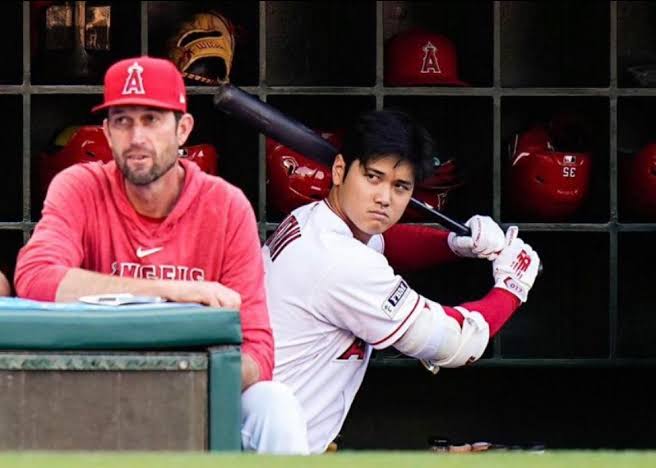In a candid interview with the press, Shohei Ohtani’s coach made a surprising declaration, stating, “We’re a better team without him because of…” This bold statement has ignited discussion and speculation within the baseball community, prompting analysis of the potential reasons behind such a controversial assertion.
Ohtani, known for his exceptional talent as both a pitcher and a hitter, has been a standout player for the Los Angeles Angels, captivating fans with his remarkable abilities on the field. However, his coach’s assertion that the team is better off without him raises eyebrows and invites scrutiny into the dynamics of the team and Ohtani’s impact on their performance.
One possible interpretation of the coach’s statement is that Ohtani’s versatility and dual role as a pitcher and a hitter may pose logistical challenges for the team’s lineup and strategy. While Ohtani’s presence undoubtedly adds firepower to the Angels’ offense and pitching rotation, his absence may allow for greater flexibility in roster management and game planning.
By freeing up roster spots and allowing other players to take on expanded roles, the team may be able to achieve a more balanced and cohesive lineup, enhancing their overall performance on the field.
Additionally, the coach may be alluding to the psychological and emotional dynamics within the team, suggesting that Ohtani’s star status and the pressure associated with his performance may inadvertently create distractions or disrupt team chemistry.
In Ohtani’s absence, the team may experience a greater sense of cohesion and unity, allowing players to focus more fully on their individual roles and collective objectives without the specter of Ohtani’s towering presence looming over them.
Furthermore, the coach’s statement may reflect a broader strategic approach aimed at optimizing the team’s performance over the long term. By strategically managing Ohtani’s playing time and workload, the team may be able to mitigate the risk of injury and ensure his longevity and sustainability as a key player for the Angels. This calculated approach may involve strategic rest days or targeted usage of Ohtani’s talents to maximize his impact while minimizing the potential for burnout or overexertion.
Ultimately, the coach’s assertion that the team is better off without Ohtani highlights the complexities and nuances inherent in managing a roster of talented athletes in a highly competitive sport like baseball. While Ohtani undoubtedly brings immense value to the Angels with his exceptional skills and versatility, his coach’s perspective offers a thought-provoking insight into the strategic considerations and trade-offs involved in optimizing team performance.
As the Angels continue their pursuit of success on the diamond, the ongoing management of Ohtani’s role and contributions will undoubtedly remain a topic of keen interest and debate among fans and analysts alike.




